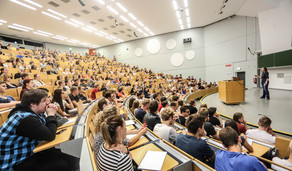Research Training Group 2624
The aim of the Research Training Group is the development and application of biostatistical methods for the analysis of high-dimensional data for modelling and risk assessment in toxicology. Doctoral researchers acquire knowledge in toxicology and the ability to develop and apply statistical methods for questions in pharmacological and environmental toxicology. In toxicology, innovative statistical methods are required to optimally exploit the ever-growing, heterogeneous, molecular flood of data for adequate modelling and risk prediction. In addition to conventional one-dimensional dose-response models, models that are more complex need to be developed. High-dimensional omics data are used in modelling both as an interaction factor for toxicological exposure and as a target.
The three project areas are regression, prediction, and integration. To model health indicators, modern regression techniques will be developed that analyse the genetic influence on the association between toxicological exposure and health, using methods with high-dimensional predictors for gene-exposure interactions. The estimation of the minimum effective dose of a compound will be specified by selecting and combining genetic markers, using methods from statistical learning. Modelling approaches will be developed for the simultaneous consideration of different doses and exposure times. Suitable data integration through the combination of different molecular data sources and additional biological knowledge will allow more informative toxicological risk predictions and better distinctions of toxicological effects.
Contact
Get in contact with us!
Contact Information
Research Training Group 2624
TU Dortmund University
CDI Building
D-44221 Dortmund
Phone: +49 (0)231 755-5735
E-Mail: grosse@statistik.tu-dortmund.de





